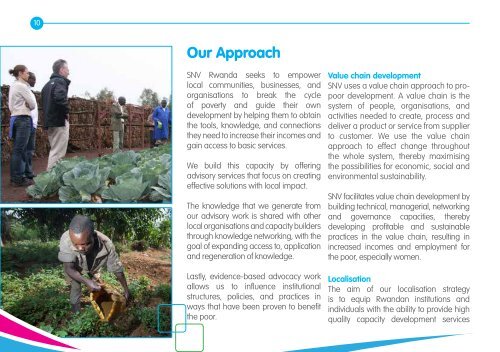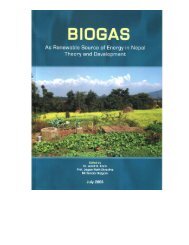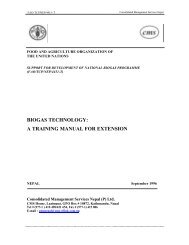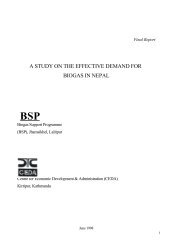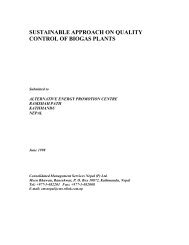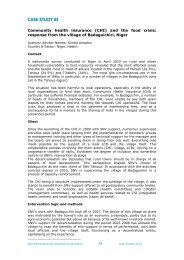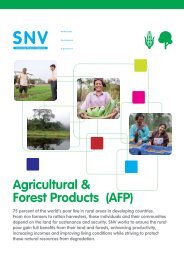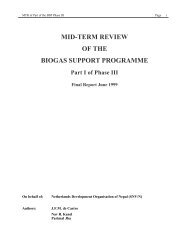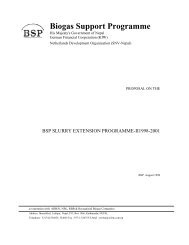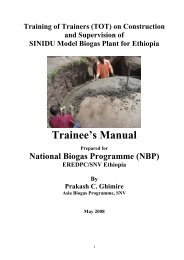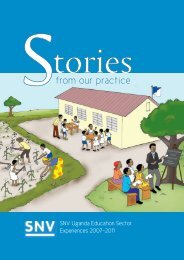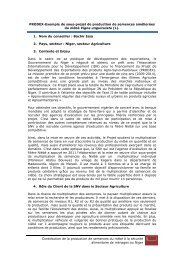download (pdf, 3MB) - SNV
download (pdf, 3MB) - SNV
download (pdf, 3MB) - SNV
Create successful ePaper yourself
Turn your PDF publications into a flip-book with our unique Google optimized e-Paper software.
10<br />
Our Approach<br />
<strong>SNV</strong> Rwanda seeks to empower<br />
local communities, businesses, and<br />
organisations to break the cycle<br />
of poverty and guide their own<br />
development by helping them to obtain<br />
the tools, knowledge, and connections<br />
they need to increase their incomes and<br />
gain access to basic services.<br />
We build this capacity by offering<br />
advisory services that focus on creating<br />
effective solutions with local impact.<br />
The knowledge that we generate from<br />
our advisory work is shared with other<br />
local organisations and capacity builders<br />
through knowledge networking, with the<br />
goal of expanding access to, application<br />
and regeneration of knowledge.<br />
Lastly, evidence-based advocacy work<br />
allows us to influence institutional<br />
structures, policies, and practices in<br />
ways that have been proven to benefit<br />
the poor.<br />
Value chain development<br />
<strong>SNV</strong> uses a value chain approach to propoor<br />
development. A value chain is the<br />
system of people, organisations, and<br />
activities needed to create, process and<br />
deliver a product or service from supplier<br />
to customer. We use the value chain<br />
approach to effect change throughout<br />
the whole system, thereby maximising<br />
the possibilities for economic, social and<br />
environmental sustainability.<br />
<strong>SNV</strong> facilitates value chain development by<br />
building technical, managerial, networking<br />
and governance capacities, thereby<br />
developing profitable and sustainable<br />
practices in the value chain, resulting in<br />
increased incomes and employment for<br />
the poor, especially women.<br />
Localisation<br />
The aim of our localisation strategy<br />
is to equip Rwandan institutions and<br />
individuals with the ability to provide high<br />
quality capacity development services


